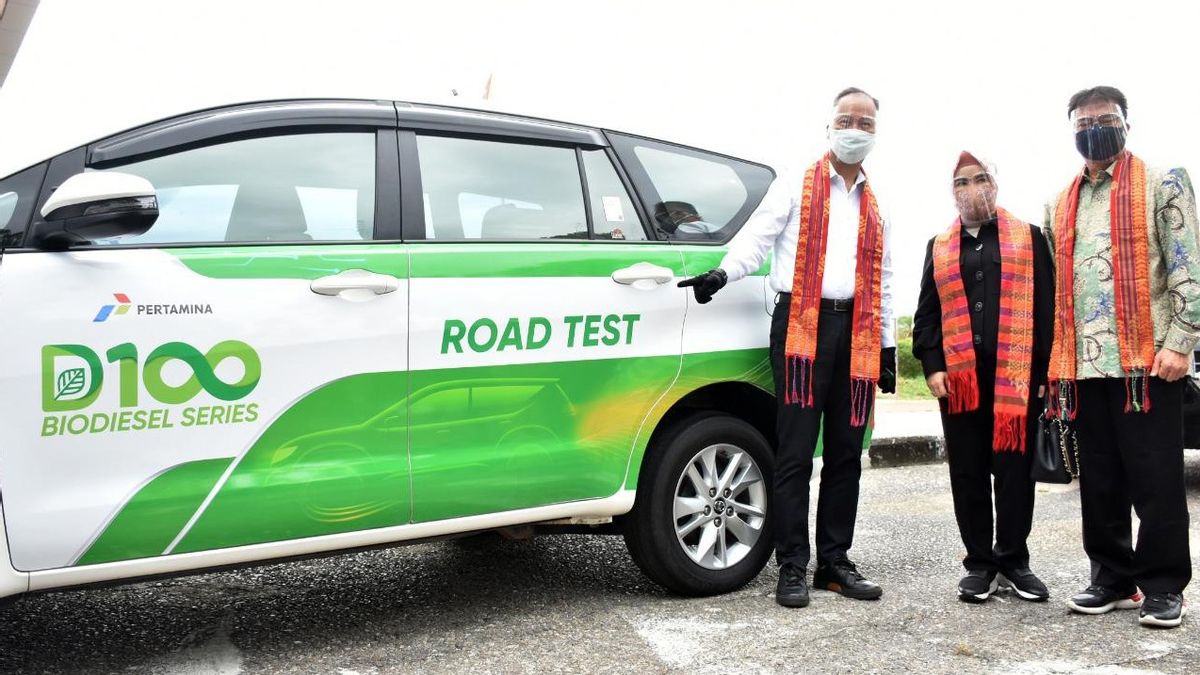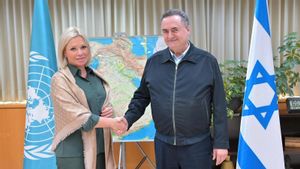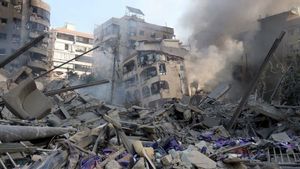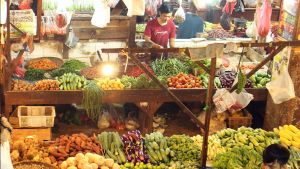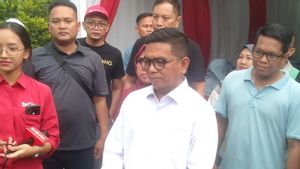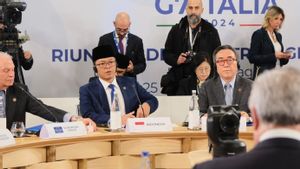JAKARTA - PT Pertamina (Persero) has successfully processed 100 percent Refined, Bleached and Deodorized Palm Oil (RBDPO) which produces Euro 5 standard green diesel or Green Diesel (D-100) at the existing Dumai Refinery facility. The production reaches 1,000 barrels per day.
D-100 is a type of fuel oil (BBM) environmentally friendly. The D-100 is made from RBDPO raw materials using red and white catalysts as a product of domestic children.
Biofuel (BBN) is the result of RBDPO processing, which is 100 percent derived from crude palm oil or CPO which is processed until the sap, impurities (impurities) and smell are lost.
Pertamina's move was appreciated by some circles. However, there are also those who question the basic cost of producing this fuel, whether it will be marketed at an affordable price to the public and does not require state subsidies.
PT FSC Oleo Chemical Founder Riza Mutiara said production costs were important to pay attention to. The goal is not to burden the public and the state in the form of subsidies when this fuel is marketed at all public fueling stations (SPBU).
"Unfortunately, Pertamina President Director Nicke Widyawati has not yet stated the basic cost of producing D-100 per liter," he said, in a written statement received by VOI, Monday, July 20.
According to Riza, if the production price of the D-100 is assumed to be equivalent to Pertamina's Dex product, which is priced at Rp.10,200 per liter at gas stations, then the value is likely to be far above that. This is because the price of RBDPO raw materials, catalysts, and the cost of a more complex refinery process using a lot of hydrogen causes the production costs to be more expensive.
"Because to produce D-100, previously CPO was processed into RBDPO requiring a long process, in the refinery starting from preheating, mixing with phosphoric acid and activated clay, acid reaction, mixing, heating to polish filtering, through 15 equipment," he said. .
Riza said, CPO refineries produce 94 percent RBDPO and 5 percent Palm Fatty Acid Distilate (PFAD), so the greater the capacity, the cheaper the production costs.
"D-100 Petamina uses MP catalyst (red and white) and the price is unknown.
From the data on CPO raw material prices of RM 2500 per ton and RBDPO prices of US $ 654.50 per ton, we can calculate how much the D-100 production costs and what the selling price is, "he said.
According to Riza, this calculation needs to be done so that Pertamina does not need subsidies from the state. Not only that, with this calculation, it can also be seen how much the logistics costs of bringing CPO to Dumai and the cost of distributing D-100 to gas stations throughout Indonesia.
On the other hand, he said, if the RBDPO was continued into the fractionation process, 77 percent of olein or cooking oil and 17 percent stearine would be produced. Currently, the retail price for packaged cooking oil is around Rp. 29,000 per two kilograms (kg).
"Stearine is processed into butter for retail for 500 grams for around Rp. 12,500. So if the CPO price rises in the market, the question is whether Pertamina can sell cooking oil and butter and bar detergent to avoid losses in the D-100 sales," he said.
Not only that, he also said, the D-100 program also needs to be compared to the B30. The reason is, B30 which can be produced using raw materials for CPO, used cooking oil, 100 percent acid oil, palm oil mill waste oil (PKS), stearine and animal fat were built by hundreds of small capacity entrepreneurs in each district to reduce logistics costs.
"Of course, between these two options, whether D-100 or biodiesel / fame will experience difficulties if the price of CPO rises which requires subsidies, while the price of FFB (fresh fruit bunches) must still be subject to VAT and CPO exports will still be subject to export duties, of course farmers. palm oil is not happy yet, "he said.
Riza assessed that with these factors, Pertamina should be able to directly produce Synthetic Diesel Oil Euro 5 with raw materials for FFB, used plastic waste, agricultural waste, wood, elephant grass, used tires, palm stalks, bamboo, empty palm oil and lowrank coal.
"Whereas according to our calculations, to produce Synthetic Diesel Oil B100 Euro 5 with raw materials directly from FFB, it can be sold at a price of IDR 4,000 per liter, which includes Pertamina's profit," he said.
If that is done, Riza continued, it will make the FFB price to Rp1,900 per kg, of course it will benefit oil palm farmers and the environment is maintained, and the country's current account deficit will be helped.
"The economic study is very important and is a key word for Pertamina to determine its attitude whether to produce D-100 through RBDPO or TBS," he said.
Pertamina Responds to ChallengesPreviously, PT Pertamina (Persero) produced a 100 percent green diesel (D-100) product processing Refined, Bleached and Deodorized Palm Oil (RBDPO) at the Dumai Refinery. RBDPO is processed palm oil (CPO) which has removed its sap, impurities and odor.
Green Diesel products were obtained after passing the July 2-9 2020 production processing trial, which was recorded as the third trial. Previously, Pertamina tested RBDPO processing through co-processing up to 7.5 percent and 12.5 percent.
Pertamina's President Director, Nicke Widyawati explained, with the successful discovery of green energy, Pertamina is answering the challenge of providing more environmentally friendly energy. Pertamina, said Nicke, also answered the challenge of absorption of palm oil, which currently has a production of 42 to 46 million metric tons with its absorption as FAME (Fatty Acid Methyl Ester) of around 11.5 percent.
At the same time, Pertamina will also build a Green Diesel unit at the Plaju Refinery with a production capacity of 20,000 barrels per day.
The English, Chinese, Japanese, Arabic, and French versions are automatically generated by the AI. So there may still be inaccuracies in translating, please always see Indonesian as our main language. (system supported by DigitalSiber.id)
